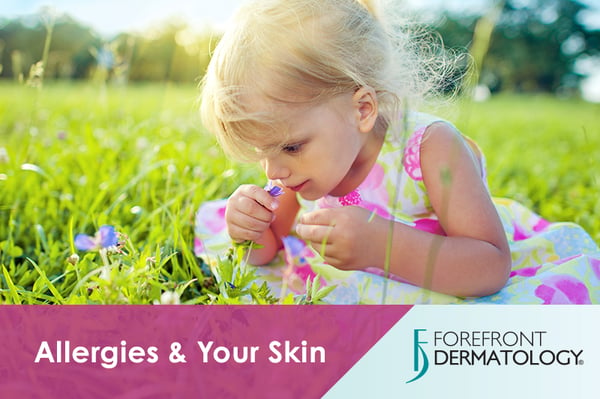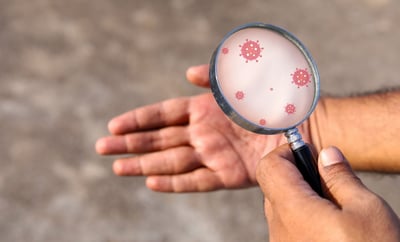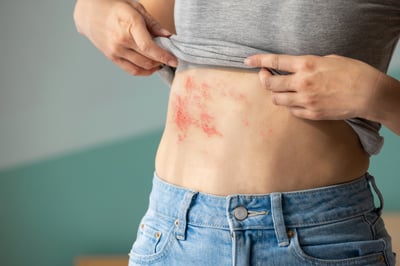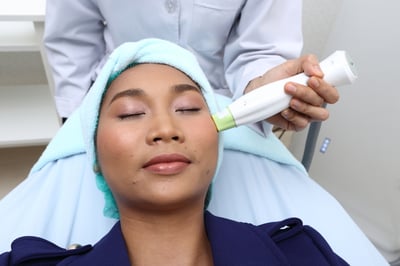
What to Do When Seasonal Allergies Act Up The snow is melting. Flowers are blooming. And your face is a becoming a puffy, runny, itchy disaster. Goodbye winter; hello allergy season. If it feels like springtime is punching you in the face, you’re not alone. Each year, some 58 million Americans suffer through seasonal allergies, commonly known as hay fever. In addition to the runny eyes and nose triggered by airborne allergens like pollen and mold spores, hay fever can also cause eczema flare-ups and rashes. So what do you do when allergies are affecting your skin? Reduce Inflammation When allergens come in contact with your skin, they trigger the release of histamines, which dilate blood vessels and cause inflammation (read as: yucky puffy face). One way to counteract this is to use over-the-counter antihistamines and anti-inflammatories like corticosteroids, and drink plenty of water to help flush your system. Pay Attention to Diet Some of your favorite foods may be exacerbating your hay fever by containing or releasing histamines. Alcoholic beverages in particular are rich in histamines, which are naturally made in the fermentation process. The same rings true for aged or fermented cheeses, processed meats, yeasty breads, and vinegar-containing condiments. Basically, your sandwich and allergies are conspiring against you. Treat Yourself There are about a million ways in which stress has been found to wreak havoc on your health. Allergies are no exception. Reduce stress and give your skin some TLC at home or at your dermatologist’s office with calming treatments – like a long soak in an oatmeal bath. Fortunately, for most, seasonal allergies are a minor inconvenience that usually only affects the area around your eyes and nose. If you’re one of the lucky few who become red, itchy, sentient balloon animals due to rash or exacerbated skin conditions, the experts at Forefront Dermatology can help. So, don’t cry. Dry your eye. And find a Forefront skin care expert nearest you by visiting the Locations page today.





